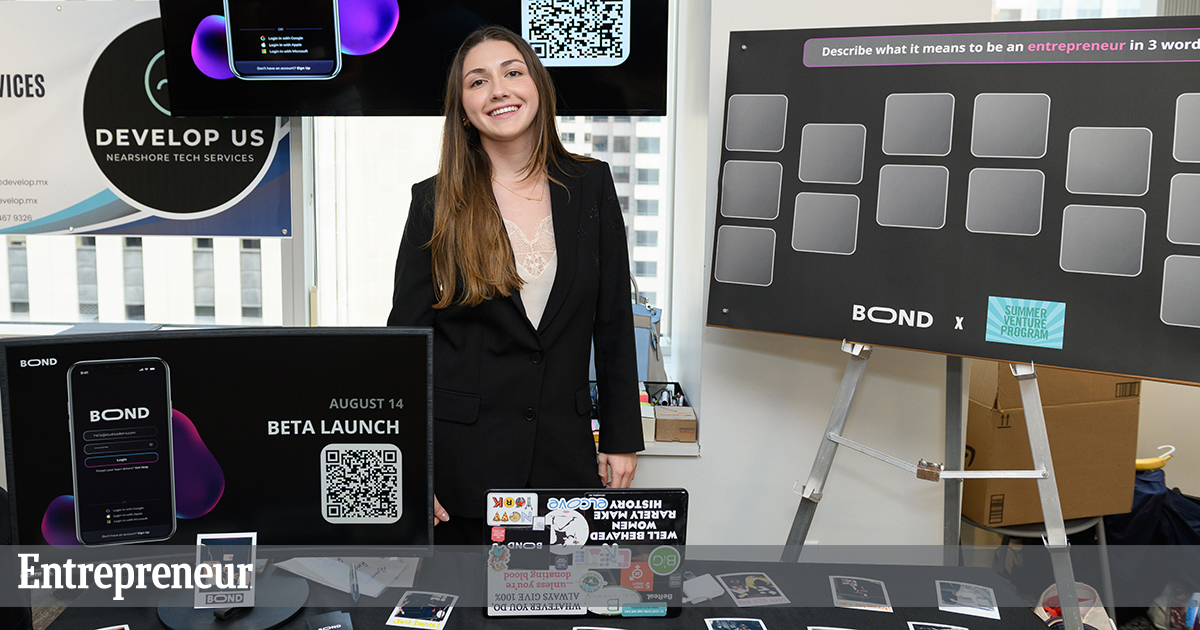I Wasted So Much Time By Not Doing These 4 Things When I Started My Business

Starting a business in college sounds simple, even glamorous, doesn’t it? The freedom to experiment, the optimism of youth and the abundance of resources at your fingertips. But in reality, there’s an overwhelming flood of conflicting advice on how to spend your time and prioritize tasks when you’re just starting out and trying to launch your venture.
I founded my business—BOND, a mobile app for remote and hybrid teams—as a student at Babson College. During the launch and growth of my venture, I realized how much time I initially wasted trying to do everything instead of focusing on what truly matters.
Editor’s note: This article first appeared in Entrepreneur magazine.
Here are four lessons I’ve learned building my business and what I would do differently if I could start over.
Utilize Your Time Effectively
In the early stages of starting a business, you’ll encounter countless opinions on what you should be doing. But the truth is, it all comes down to two things: understanding your customer and building your product as fast as possible. That’s it.
When I was just starting, I didn’t have the technical skills to build my product—and that was a blessing in disguise. It forced me to think of creative, non-scalable ways to validate the concept. For example, in the first version of BOND, I manually sent prompts and responses to more than 80 users every day through WhatsApp for 206 days straight. At 9 a.m., I’d send the prompts, and at 9 p.m., I’d send the results. It wasn’t until Day 150, when I had 89% daily active users that I even considered building a technical solution, a minimally viable product, to start scaling those necessary daily tasks.
Doing things that aren’t scalable at the start forces you to understand your customer on a deeper level and refine your product with real-world feedback, ideally forcing you on the right path.
Surround Yourself with the Right Crowd
If you want to fast-track your growth, surround yourself with people who are on the same journey. For me, living in eTower—a student founders’ house at Babson—was the best decision I made. Being around entrepreneurs 24/7 transformed the way I work. I quickly realized that successful entrepreneurs share a few key traits: resilience, delusional confidence and a relentless work ethic.
Resilience comes from either being deeply attached to the problem you’re solving or having a burning desire to make it no matter what. Delusional confidence, which might sound strange at first, is also helpful. Confidence comes from many sources, but maintaining it during tough times is all about having the right people and support around you. It’s about surrounding yourself with those who genuinely believe in you while also being unafraid to give you the tough, honest feedback you need. You need people who will challenge your ideas, push you to improve and still have faith in your ability to build something truly impactful. And finally, hard-smart-consistent work is a skill that’s honed by learning from others who’ve been in the game longer than you and applying their hacks—while also developing a few of your own.
Having like-minded entrepreneurs and other experienced supporters in your corner provides constant guidance and direction to help keep your venture improving and growing.
Take Advantage of Funding and Resources
As a college student, raising money can feel like climbing a mountain with no summit in sight. But here’s the thing: not raising too much early on is actually a blessing. You don’t want a large amount of capital when you’re still figuring out what’s worth paying for and what you need to master before outsourcing.
Learning to be scrappy is a superpower for student founders. There are countless resources—pitch competitions, accelerators and funding opportunities—just waiting for you to tap into them. Pitching, in particular, is one of the best investments you can make in yourself. It forces you out of your comfort zone, teaches you to think on your feet and helps you refine your storytelling skills.
As a CEO, you need to be able to answer three key questions convincingly: Why you? Why this? Why now? Mastering the art of pitching has helped me raise over $50,000 from competitions alone.
Don’t Wait for Your Product to be Perfect
Here’s the kicker: Your product will never be perfect. The worst thing you can do is keep waiting for perfection while delaying the opportunity to learn from real customers. I wish someone had told me earlier that it’s OK to start charging for it before you think it’s ready because it’s actually a great sign that you are on the right track and provides valuable real-time feedback.
When I first started BOND, I was terrified of rejection. I delayed launching for six months, thinking I needed everything to be flawless before asking anyone to pay for it. What I learned is that the feedback you’re scared to hear is often exactly what you need to hear. My advice to anyone who is sitting on an idea: just start. Starting BOND has been the best decision of my life because it has been the fastest way to grow my knowledge, skill set and network. Remember, for entrepreneurs, “The only failure is not to try.”
Chloe Samaha ’25 is the CEO and co-founder of BOND, a platform to shape innovative company cultures, and the former president of eTower, a living-learning community for entrepreneurs at Babson College, where she is a senior.
Posted in Insights






